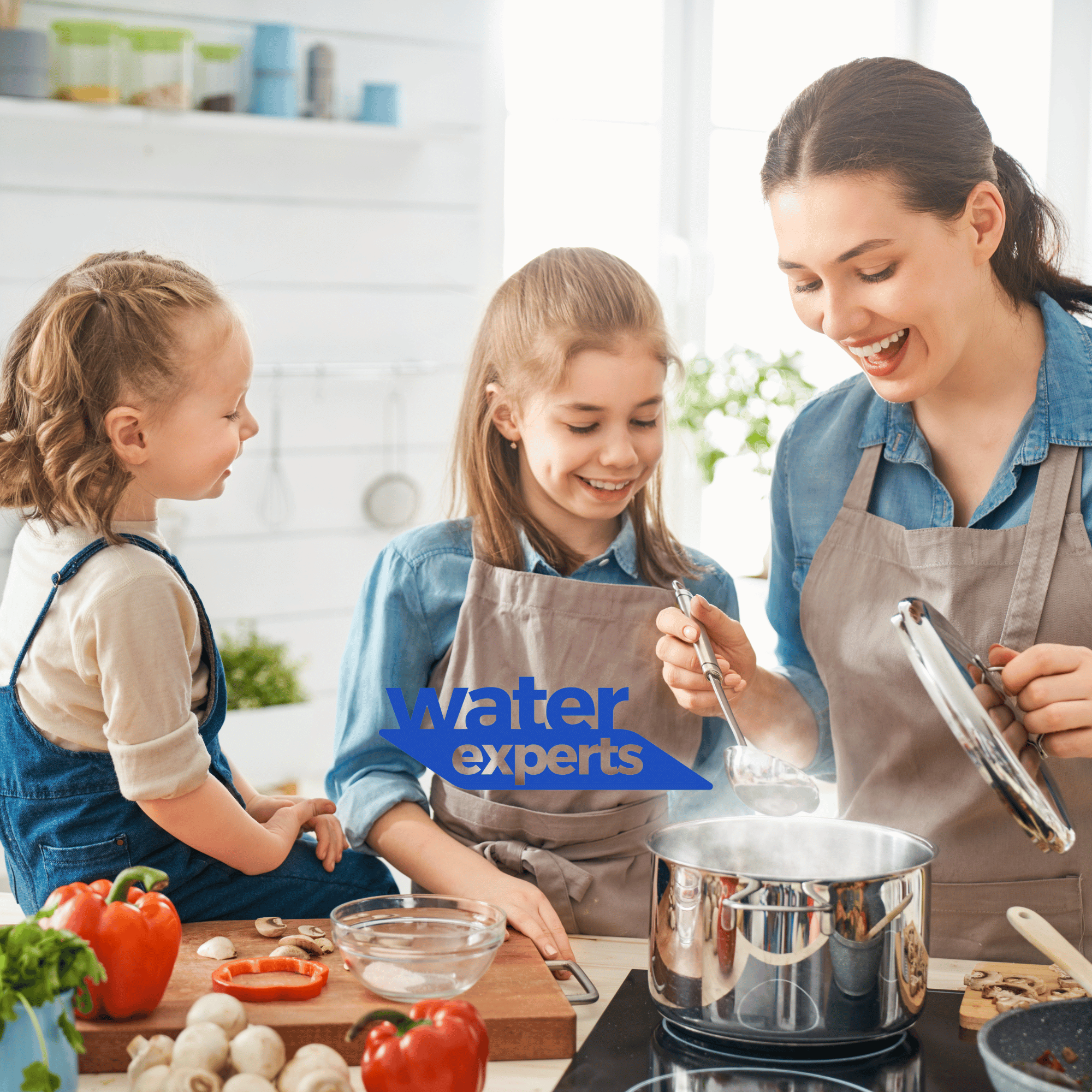In every delicious dish, in every simmering stew, there’s one crucial ingredient that often goes unnoticed. It’s not the garlic, the perfectly chopped veggies, or even that pinch of salt that brings everything together. It’s water. That’s right, plain, simple H2O. But there’s nothing “plain” about the water we use in our kitchens, especially if we’re talking about South African tap water. When it comes to cooking, the quality of our water can make or break a meal—and possibly even impact our health.
So, is that clean water in the pot you’re about to boil your rice in?
Why Clean Water Matters in Cooking
Imagine you’re whipping up a hearty potjiekos or a fragrant chicken curry. What we often forget is that up to 90% of the food we cook contains water in some form. Water isn’t just there to keep food moist—it’s the silent carrier, delivering flavour, nutrients, and texture to your dish.
But here’s the kicker: that same water could also carry things you don’t want. Think of chlorine, pesticides, heavy metals, and who knows what else. And as much as we love to think that South African tap water is “good enough,” the truth is that our water is facing a lot of challenges. Just ask anyone who’s lived through “Day Zero” in Cape Town or has seen the reports on water quality fluctuations across the country.
So, if you care about your family’s health and the flavours in your food, it’s worth looking deeper into the water you’re cooking with.
The Downside of Cooking with Impure Water
When you cook with water that’s less than pure, you’re doing two things:
- You’re altering the flavour of your food.
Chlorine, which is often added to tap water to kill bacteria, can give your food a slightly medicinal taste. It might not be obvious, but taste tests show that even a hint of chlorine can make vegetables taste metallic and dull the natural sweetness of ingredients like carrots, peppers, or butternut. - You’re introducing unwanted substances into your diet.
You might not think much of a bit of extra calcium or magnesium in your water, but heavy metals and bacteria? That’s a different story. Cooking does not remove lead, nor does it get rid of certain pesticides. These contaminants can accumulate over time, impacting your health in ways that aren’t always immediately visible. Remember: you’re not just drinking the water. You’re absorbing it with every bite of food you prepare.
South African Water Quality: The Facts
The quality of tap water in South Africa varies depending on where you are. Some regions, like Johannesburg and Cape Town, have high standards for water treatment. However, in many rural and smaller urban areas, water quality can be unpredictable. South Africa’s infrastructure challenges mean that pipes are often old, and while the water may leave the treatment plant in good condition, by the time it reaches your tap, it could have picked up all kinds of impurities.
When load shedding hits, water treatment facilities sometimes go offline, and this can disrupt regular purification processes. This is not to say that our water is undrinkable or dangerous, but rather that it’s inconsistent. And when it comes to cooking, consistency is everything.
The Benefits of Using Filtered, Clean Water in Your Cooking
So, if you could control the quality of one of the main ingredients in every meal you make, wouldn’t you want to?
Using filtered water in your cooking is like using a premium ingredient. It’s a small step that adds up to a big impact, both on flavour and on health. Here’s how:
- Cleaner, Purer Flavors
Filtered water lets the natural flavours of your ingredients shine. When you use clean water, you can taste the difference in the crispness of your vegetables and the richness of your soups and sauces. - Healthier Meals
By filtering your water, you’re reducing your exposure to harmful contaminants like lead, pesticides, and chlorine by-products. This isn’t just a health move; it’s an investment in the longevity and well-being of your family. - Longer Shelf Life for Your Cookware
Hard water often leaves a residue in kettles and pots, building up over time. Filtered water is kinder on your cookware, meaning you’ll have less of that annoying white film on your pots and pans. - Better for Baking
Any baker will tell you that water quality can impact the outcome of your bread, cakes, and pastries. Water high in chlorine or with high mineral content can throw off the delicate balance of ingredients in your dough or batter, leading to disappointing results. Pure water helps ensure your bakes turn out just as you intended.
A Small Change with Big Results
Now, using filtered water might seem like a small step in the kitchen. But the difference it makes is noticeable. You wouldn’t use old, expired spices in a dish, so why settle for less-than-great water?
For South Africans, who already face a mix of infrastructure challenges and environmental uncertainties, taking control of water quality in the kitchen is a straightforward, impactful way to protect your family’s health and elevate your meals.
So, next time you’re filling up a pot for pap or preparing water to blanch some veggies, think about the quality of that water. Because when it comes to what’s in your food, every drop counts.

Get The AquaShield and turn your kitchen into the source of the purest, most delicious water you’ve ever tasted!

